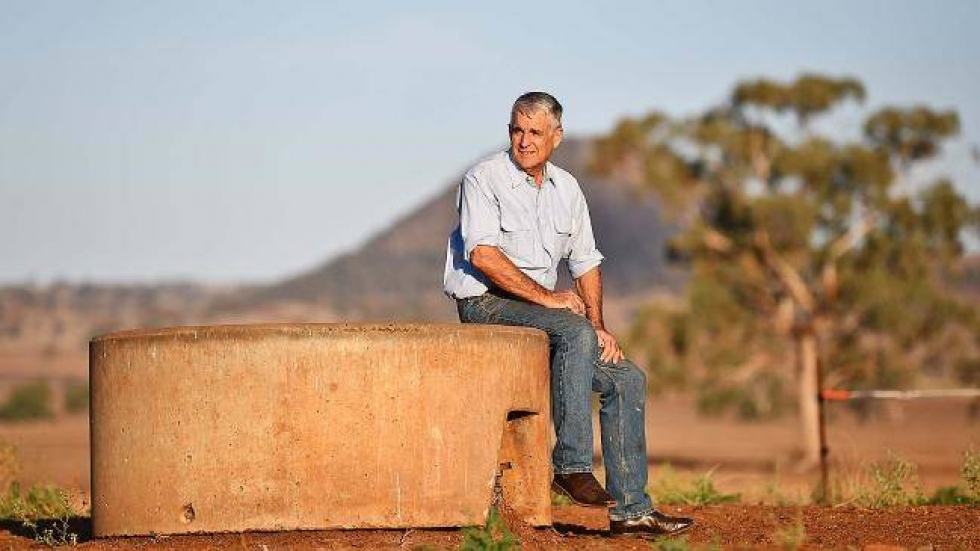Whether the distinguished former Nationals' leader John Anderson would do more good for his country back in parliament or continuing his polished podcast interviews with global thought leaders is a moot point, now that his eternally disappointing party has rejected his Senate bid. What looks like a bad outcome might not be.
The decision of the good pre-selectors of the National Party to resist the attempt by its remaining elder statesman, John Anderson, to resurrect his political career, looks like an own goal.
It was a rare opportunity to re-inject into its parliamentary ranks a candidate of class, tradition, moral spine and, as the British would say, “bottom”. Naturally, they failed to take up the opportunity. Internal base factional politics won the day, as it always does. Anderson was vanquished by – you guessed it – a former president of the Young Liberals! You couldn’t make this up.
In a sense, it is not remotely surprising that the Nationals of the twenty-first century would deny John Anderson. The Nationals always stood for two things – social conservatism and regional representation. Now they stand for woke politics and “getting stuff for the bush”, a bastardised version of their original intent. The latter cannot be the basis for a party that stands for something.
John Anderson stands for a National Party that no longer exists. As he demonstrated during his first political career, and as he has demonstrated since, Anderson represents a world view that embraces Enlightenment values, traditional mores, decent debate, elevated policy-making, and a commitment to something far higher than politicised community grants for favoured localities. He perceives now a failed politics, an abandonment of principles, a marketing fest, a replacement of spine by second-rate classless deal-making. John Anderson made a specific promise to the Nationals. That he would elevate politics beyond its current, gutter-level aspiration. They said “no”.
In other words, he would be totally wasted in the Australian Parliament.
John Anderson represents, alas, the politics of the past. The politics that found a place for, dare one say it, Judeo-Christian virtue. Where freedom is tempered by the rule of law and by baseline, authentic decency. Dare one dare it – family values. Anderson understood that the Nationals were a family party, where family meant something beyond a couple of gays and cocker spaniel, and that being “of the country” meant way more than a simple geographical electoral entity that begged for financial favours.
The rejection this week by the Nationals of John Anderson is a significant marker of Australian politics as it has now been defined, and dumbed down. It is a moment of meaning and of consequence.
But perhaps the rejection of John Anderson by the Nationals is actually a victory of sorts.
It may well be a victory for the broader struggle for a decent politics and for a push-back against the nihilism of contemporary public life. For Anderson, post-politics, has found new ways of advancing the cause of centrism and decency. His podcasts have exposed those who enjoy them to a broad range of big and broad and open thinking, of a kind that Anderson could never have achieved in his former career in the Canberra bubble.
Or, consider the recent decisions of conservatives like George Christensen and Nicolle Flint to abandon the parliamentary road to a better democracy. Perhaps the battles to be fought against those who would abandon the principles that once drove the Liberal and National Parties can better be fought outside the confines of the tedious, limiting, bitter internecine wars that now characterise the party room.
Anderson thought there was a way back into that game. He was wrong. That is not the way that the battles are now fought in Canberra. His two mistakes were that, one, he still thought that the mainstream right-of-centre parties were “broad churches”, and two, that he thought that his values of traditional and competence would necessarily prevail.
An ongoing theme of John Anderson’s post-politics podcasts has been the need for reasoned, non-ideological conversations about public policy. A calmed-down discussion of the critical issues of the day. A sense of history and of core values. A break-out from the entrenched, race-to-the-bottom, deal-driven politics of the modern Australian polity. He was right that it is needed. He was wrong that anyone else in the Canberra bubble shared his vision. And that anyone now in politics would want that back.
The modern Nationals are all but a lost cause. They have little to offer either their former regional strongholds, where voters have largely realised they are without ultimate value, or those of us who once thought they might provide a counter to Liberal Party wetness with spine.
The Nationals have done two notable things this past week. They replaced a useless leader. And they rejected a rare chance for salvation. Unfortunately, the wrong thing will get all the media attention.
I know one person who is thrilled that he lost the pre-selection battle.
That is someone who is lined up for an interview on the John Anderson podcast. In one sense, we should all be pleased that he lost. The battle he apparently wished to rejoin does not deserve him. Culture, as Andrew Breitbart said with prescience, is upstream from politics. The bigger wars today occur outside the Canberra cesspit and the party room.
John Anderson, go back to your higher, better profession. We need you there. They don’t want you. Nor do they deserve you.








